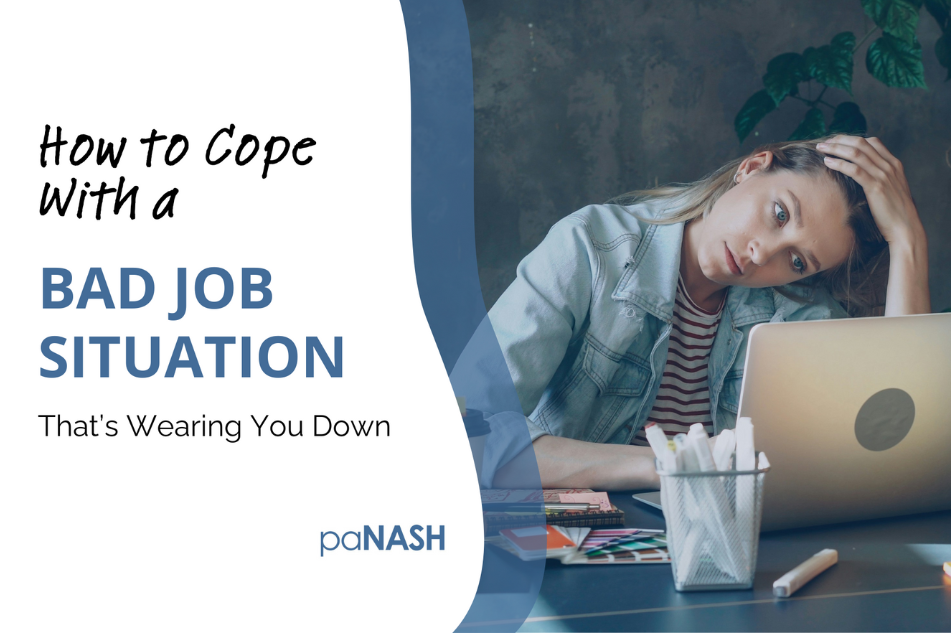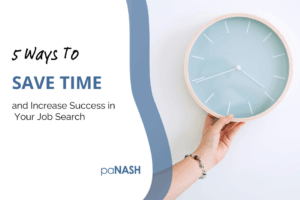|
|
We’ve all been there, myself included. You tell yourself, “Just hang in there a little longer.” You grit your teeth, keep your head down, and push through. Because that’s what responsible adults do, right? They make the best of a bad job situation.
But what happens when the situation drags on too long? When your optimism turns into exhaustion, and your resilience starts to feel more like resignation?
Making the best of a bad job situation can be admirable, until it starts costing you more than it’s worth.
When coping with a bad job situation becomes a cover-up
At first, you probably thought things would get better. Maybe you hoped a toxic boss would move on, a chaotic season would calm down, or the workload would lighten up eventually. But “eventually” never came.
And now you find yourself:
- Feeling emotionally drained at the end of every day
- Dreading Mondays (and maybe even Sundays)
- Struggling to stay positive or engaged at work
- Questioning if it’s you and not the situation
It’s a slow burn. And it chips away at your confidence, your motivation, and sometimes even your physical health.
Stuck doesn’t mean powerless
Maybe you feel like you can’t leave your job right now. The bills are real, the job market feels uncertain, and making a career move might seem impossible at this stage of life.
I get it. Staying might be the only option for the moment. But this doesn’t mean you have to suffer in silence or let the situation erode your well-being.
You still have options. And you have more power than it feels like right now.
What you can do while you stay
If you’re trying to hang in there, here are a few things to help you make the situation more manageable, or at least less harmful:
1. Be specific about what’s draining you
Is it a lack of support? Unrealistic expectations? Misalignment with your values?
Pinpointing the problem gives you clarity and direction.
2. Set micro-boundaries
You might not be able to change the whole system, but you can start protecting your time, energy, and mental space in small ways.
3. Focus on what you can control
Whether it’s your morning routine, your lunch break, or your reaction to stressful emails, tiny shifts can reclaim a bit of sanity.
4. Plan your exit strategy, even if it’s long-term
Just having a plan (or starting one) can be the light at the end of the tunnel you need.
I personally started my own business part-time while still working full-time. Nine months later when I finally left, I had something to run to instead of something to run from.
5. Get outside support
A coach can help you navigate the current mess, advocate for what you need, and slowly map out a more hopeful future.
Fortunately for me, the networking efforts I used when planning my own exit strategy provided me a safety net for when I left my job. I can teach you those same networking strategies, and more, to help you minimize your risks while discovering what’s next for you.
You’re not weak for wanting out of a bad job situation
There’s strength in staying when you must. But there’s also strength in admitting when something is no longer working.
You don’t have to fake positivity or keep telling yourself it’s not so bad. It’s okay to say, “This is hard,” and seek help to make it less hard.
This is where I come in. If you’re making the best of a bad job situation and it’s wearing you down, let’s talk. Not about quitting today. But about how to protect your peace while staying the course, and how to build a smarter exit strategy, if and when the time is right.
Start with one simple, no-pressure step: complete the paNASH intake form to schedule a complimentary consultation. You deserve a career—and a life—that doesn’t leave you running on empty.
Related resources
- How to Make Your Sucky Job More Bearable (Until You Can Leave)
- From Nightmare Job to Dream Career: One Man’s Story
- How to Mask Your Confidential Job Search to Protect Your Current Job
- How to Plot Your Escape From the Golden Handcuffs
- When Is the Right Time to Leave Your Job?
- When You Can’t Leave Your Job But Still Need Career Help: 10 Red Flags
- Interview with The Disruption Lab podcast





